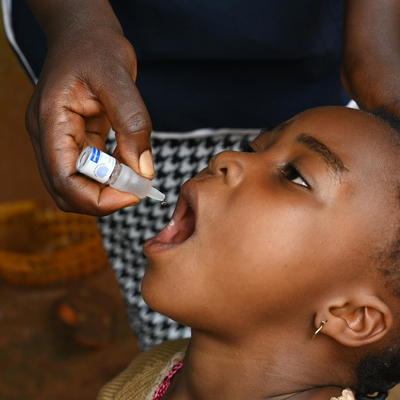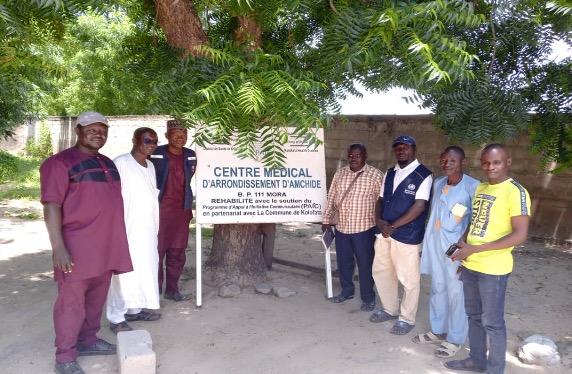
In the Lake Chad Basin, Cameroon, Nigeria, and Chad are synchronizing cross-border polio vaccination campaigns to ensure no child is missed in the fight against polio. From October 24 to 27, 2024, Cameroon's campaign aligns with Nigeria's efforts to combat persistent variant polioviruses. Health districts across Cameroon's Far North, N'Djamena in Chad, and Borno State in Nigeria are collaborating on strategies like "Back-to-Back" vaccinations at border crossings, data sharing, and real-time communication via WhatsApp. Despite challenges like unsynchronized campaigns with Chad and complex border points like the Ngueli Bridge, coordinated efforts involving authorities and community leaders are overcoming obstacles. Part of the 2024-2025 cross-border coordination plan by the Rapid Response Team (RRT), this initiative showcases the vital role of synchronization and collaboration in eradicating polio and moving toward a polio-free Lake Chad Basin.
The Urgent Need for Synchronization
Faced with the persistent circulation of variant polioviruses within and between countries in the Lake Chad Basin, stakeholders in polio eradication have identified the quality of vaccination campaigns as a critical factor for success.
A major component of this quality is the synchronization of cross-border vaccination activities. In this context, Cameroon's polio outbreak response campaign, scheduled from October 24 to 27, 2024, and synchronized with Nigeria's campaign, brought together health system actors from Cameroon's Far North regions, N'Djamena in Chad, and Borno State in Nigeria—areas that share common borders.
Building Bridges Between Border Districts
Coordination among actors is just as essential as synchronization. Meetings were held between management teams from Cameroonian districts—Goulfey, Kousseri, Maga, Vele, Yagoua, Guidiguis, Kaélé—and their counterparts in Chad, including the health districts of Mani, Massaguet, N'Djamena North, N'Djamena East, Mandelia, Guelendeng, Bongor, Katoa, Fianga, Binder, and Youe. Similarly, exchanges took place between the districts of Kolofata, Fotokol, Goulfey, Mada, Mokolo, Bourha, Mogode in Cameroon, and their Nigerian counterparts: Mubi, Michika, Madagali, Gwoza, Bama, Ngala, and Banki.
Defining Common Strategies for Optimal Coverage
These meetings served as platforms for teams from different health districts to exchange ideas with the main objective of defining common strategies to ensure that no child is missed during the vaccination campaign. Specifically, discussions focused on:
- Reinforcing Vaccination Strategies at Crossing Points: Emphasizing the "Back-to-Back" strategy to cover children moving across borders.
- Data Reporting and Sharing: Establishing protocols for reporting and sharing vaccination data between areas and health districts on both sides of the borders.
- Real-Time Communication: Creating WhatsApp forums for instant sharing of information about the campaign.

Photo: Health officials and community leaders gather at a medical center in Anchidé, symbolizing the collaborative efforts between Cameroon, Chad, and Nigeria to synchronize polio vaccination campaigns.
Addressing Challenges with Chad
Given that the current vaccination round is not synchronized with Chad, special emphasis was placed on the importance of communication for social and behavior change among border populations on the Chadian side. Efforts are being made to ensure that communities are informed and engaged, despite the lack of synchronization.
Part of a Larger Coordination Plan
All these activities are part of the cross-border coordination plan for polio eradication (2024-2025) implemented by the Rapid Response Team to epidemics (RRT). This plan aims to enhance collaboration between neighboring countries to tackle the spread of poliovirus effectively.
Overcoming Unique Border Challenges
Certain crossing points present unique challenges that require greater involvement from administrative authorities, community leaders, and officials of defense and security forces to manage population movements and address refusals effectively. A notable example is the "Ngueli Bridge" between the health district of Kousseri in Cameroon and N'Djamena East in Chad. Here, coordinated efforts are crucial to facilitate vaccination activities and ensure community acceptance.
The cross-border polio vaccination activities exemplify the critical importance of collaboration and synchronization in disease eradication efforts. By uniting health districts across Cameroon, Chad, and Nigeria, stakeholders are taking significant strides toward ensuring that no child is missed in the fight against polio. Through shared strategies, open communication, and dedicated coordination, the vision of a polio-free Lake Chad Basin moves closer to reality.

